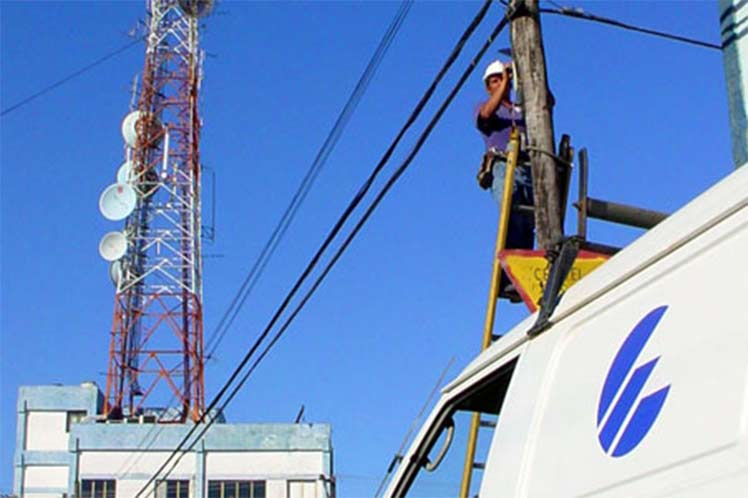
Havana, Nov 1. - From March 1, 2022 to February 28, the blockade imposed by the United States on Cuba caused damage to the communications sector amounting to $41,270,050.
As in previous periods, the Cuban Telecommunications Company (Etecsa) was the most affected, registering a figure of 40 million 901 thousand 400 dollars in losses, which represents approximately 99.1 percent of the total amount of damages reported in the branch, as cited today by the web portal of the Ministry of Communications.
It confirms that the siege and pressure on entities that have commercial relations and others with an interest in negotiating with communications companies continues, which negatively affects the possibility of Cubans to have adequate infrastructure, greater access to the Internet and the computerization.
Several international suppliers that provided repair services to the installed technology have decided not to continue doing so, even those on which more than 50 percent of the current equipment depends.
The blockade has also prevented Cuban and US entities from moving forward in concluding mutually beneficial agreements in the telecommunications sector.
An example is that the signing of the contract between Etecsa and Colombus Network Limited, a subsidiary of Liberty Latin America, for the connection to the first ARCOS-1 submarine cable that would connect the United States with Cuba, was pending for more than four years awaiting the evaluation of the license requested by the company from the Federal Communications Commission (FCC).
For its part, on November 30, 2022, the Department of Justice published a recommendation made by the Committee on Evaluation of Foreign Participation Report against blocking 32 in United States Telecommunications Services to the FCC, to deny the license.
The Committee's arguments included the alleged counterintelligence threat that the island represents to the northern nation and the country's designation as a State Sponsor of Terrorism.
On December 13 of the same year, Florida Senator Marco Rubio sent a letter to the Chairwoman of the FCC to demand the immediate rejection of the license. These actions put pressure on the American company, which withdrew the application.
In addition, the limitation to access Internet broadband links continues, which impacts the speed of downloads of software, music, radio and television programs that are transmitted in real time and access to certain sites where the updates, often free, of programs with millions of users around the world.
These obstacles restrict the flow of information and the massification of Internet access in Cuba, make connectivity difficult and expensive, and condition the entry of Cuban users to various virtual platforms. (Text and photo: PL)